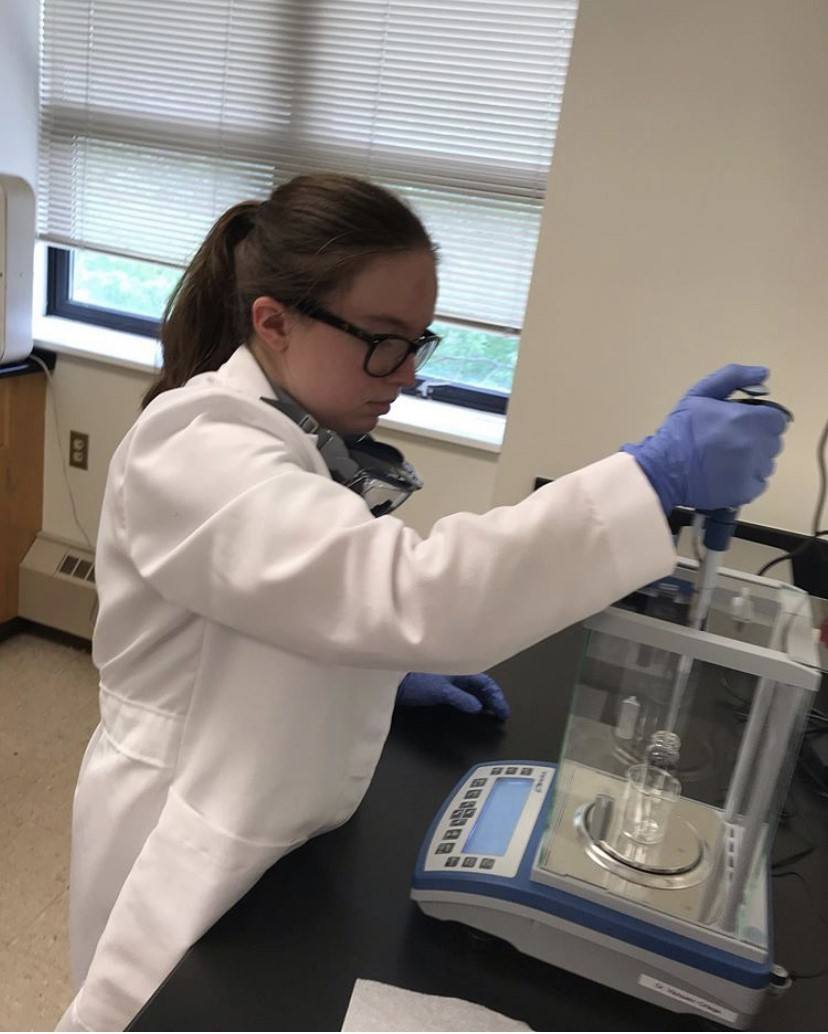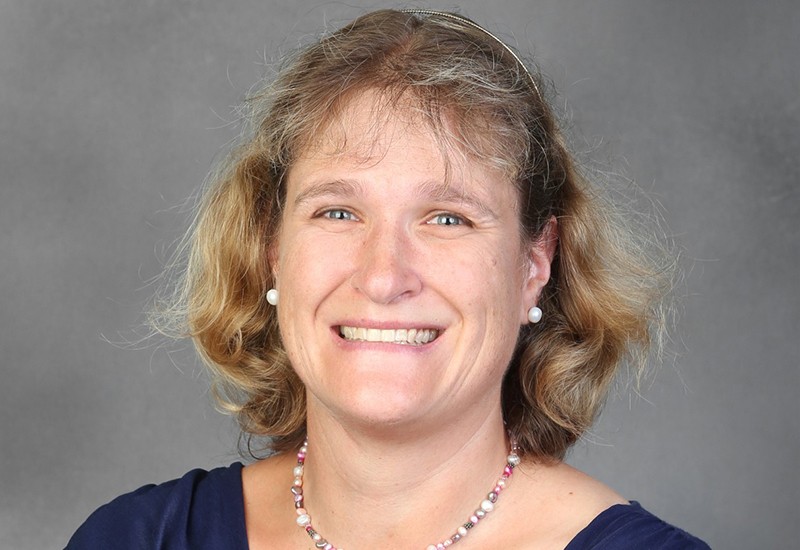Effects of lake dredged sediment from Western Lake Erie Basin on soybean yields in Ohioan farms.
Emily Manner is a third-year student at Bowling Green State University. She is originally from Toledo, Ohio and is currently studying Environmental Science with a specialization in Sustainable Management. Outside of class, she sings in Acouschicks A Capella, the only all-female a capella group on-campus, and she is also the treasurer for this group. Additionally, she is involved in College Democrats and Environmental Action Group. For the 2020 CURS Symposium, Emily completed a research project entitled “Effects of lake dredged sediment from Western Lake Erie Basin on soybean yields in Ohioan farms.”
9 Questions with Emily
What are the effects of dredged sediment on soybean health and biomass?
My project was a small portion of a much larger thesis project run by Russell Brigham. My lab team consisted of Russell, our advisor Dr. Vasquez-Ortega, and undergraduate peers Sara Honeck, Adam Swindt, and Hannah Bebinger. Together we planted the soybeans and set up the greenhouse per Russell’s design. As the plants grew, we made rainwater in the Aqueous and Geochemistry lab and conducted rain events. Once the plants were fully grown, we harvested them. We collected soil core samples, soybean pods, and washed and collected the roots from each plant. After harvesting, I assisted in drying and weighing the roots. Once the roots were dried and weighed, we pulverized them for further study.
Having lived near the Great Lakes, and specifically Lake Erie, my entire life I have always know the effects that algae blooms have. Once I began at BSGU with my Environmental Science major, I became more interested in the many issues caused by algae blooms on Lake Erie. During my first semester of college, I had Dr. Vasquez-Ortega for Introduction to Environmental Studies (ENVS 1010). I was interested in the topics we discussed and continually applied myself throughout the course. Halfway through the semester, Dr. Vasquez-Ortega approached me, Sara Honeck, and Hannah Bebinger asking for us to be a part of this research. I was thrilled and agreed to the opportunity to participate in research that could directly benefit where I grew up.
My results for the project were both interesting and exciting. We found that there was no microcystin, the toxin that results from algae blooms, in the roots of the soybean plants grown in dredged sediment. Data displayed that as the amount of dredged sediment increased, the biomass of the plant also increased. This is due to dredged sediment having high nutrient content. These results mean that one day farmers could safely grow crops in either a mixed ratio of farm soil and dredged sediment or 100% dredged sediment. This would greatly reduce the need for adding large amounts of fertilizers and thus reducing nutrient deposits into Lake Erie.
While working on my CURS project, I encountered many challenges. I came into this project only having one year of college completed. This forced me to learn a lot about science concepts, working in labs, and problem-solving by doing it hands-on. More often students will have encountered these in the classroom first. However, this experience has put me ahead of my peers academically as I encounter them in class. At first, it was easy to give up on challenges and things I did not fully understand and ask Russell and Dr. Vasquez-Ortega for help. As the project continued, my peers and I began to work through problems by ourselves and with the help of each other. I became more confident in my abilities as an “aspiring scientist”.
Coming into college, I doubted my abilities. Starting a science major was daunting without much background knowledge of basic science topics. In high school, I was denied by teachers to take higher-level science classes because my grades did not meet their expectations. College also meant living on my own. This was especially challenging as I have chronic health issues. However, I was determined to do my best each and every day. As the weeks went on, I found myself loving college and succeeding academically. I worked hard in every class because I felt passionate about what I was learning. Dr. Vasquez-Ortega saw my passion for my studies and my work ethic and presented me with an opportunity. I am so lucky that she asked me to be a part of a research project that challenged me to be a better scientist and helped me further my education beyond the classroom.
The Center for Undergraduate Research and Scholarship has helped me further my education in ways I would not have received in the classroom. Completing this project has put me miles ahead of my peers in the Environmental Science program. I have received practical job experience for my resume, which I am sure will help me to land jobs after graduation.
There are going to be times when you feel like you are not capable of doing parts of your project. When this happens, ask for help from your advisor and peers and keep trying. Not every step of the proposal, project, and presentation are going to come naturally to you. You are bound to write bad drafts, misunderstand data, do something incorrectly, or face an unforeseen problem. That is okay as these are all crucial to the learning process.
A fact about myself is that I don’t like feeling unproductive during my free time. Although I love Netflix, it is rare to find me watching it alone. Many of my hobbies are ones that work my brain or consist of making something. I enjoy jigsaw puzzles, typically only 1,000+ pieces, because I love the thought process while completing them. I am also an avid knitter and I was the president of Knitting for Charity Club in high school. My other hobby is singing, and music has always been a huge part of my life. I took voice lessons for 10 years before college and love to sing with my A Capella group, Acouschicks, in my free time.

As the project continued, my peers and I began to work through problems by ourselves and with the help of each other. I became more confident in my abilities as an “aspiring scientist”.
Updated: 03/07/2021 05:07PM

